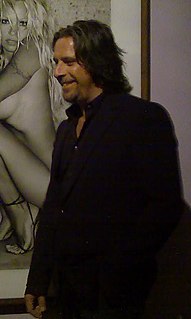A Quote by Sarah Dessen
He always did the leaving. But not this time. She kept walking, and did not look back.
Related Quotes
But what I kept wondering about is this: that first second when she felt her skirt burning, what did she think? Before she knew it was candles, did she think she'd done it herself? With the amazing turns of her hips, and the warmth of the music inside her, did she believe, for even one glorious second, that her passion had arrived?
Over the years I always did some water colors, and I did a series of pictures of drawings. I always did it during a period of time that was slow in the photo business, but in essence it was always frustrating because I'd get started, and then it would be time to get back to work and I wouldn't get anywhere with the painting.
We're resolved tonight that young Americans will always see those Potomac lights, that they will always find here a city of hope in a country that's free so that when other generations look back at this conservative era in American politics and our time in power, they'll say of us that we did hold true to that dream of Joseph Winthrop and Joseph Warren, that we did keep faith with our God, that we did act worthy of ourselves, that we did protect and pass on lovingly that shining city on a hill.
I always thought I wanted to play professionally, and I always knew that to do that I'd have to make a lot of sacrifices. I made sacrifices by leaving Argentina, leaving my family to start a new life. I changed my friends, my people. Everything. But everything I did, I did for football, to achieve my dream.
People said things they didn't mean all the time. Everybody else in the world seemed able to factor it in. But not Lena. Why did she believe the things people said? Why did she cling to them so literally? Why did she think she knew people when she clearly didn't? Why did she imagine that the world didn't change, when it did? Maybe she didn't change. She believed what people said and she stayed the same." (Lena, 211)
[Short Talk on Sylvia Plath] Did you see her mother on television? She said plain, burned things. She said I thought it an excellent poem but it hurt me. She did not say jungle fear. She did not say jungle hatred wild jungle weeping chop it back chop it. She said self-government she said end of the road. She did not say humming in the middle of the air what you came for chop.
Whenever the horse stopped (which it did very often), he fell off in front; and, whenever it went on again (which it generally did rather suddenly), he fell off behind. Otherwise he kept on pretty well, except that he had a habit of now and then falling off sideways; and, as he generally did this on the side on which Alice was walking, she soon found that it was the best plan not to walk quite close to the horse.
The doctor's wife wasn't a bad woman. She was sufficiently convinced of her own importance to believe that God actually did watch everything she did and listen to everything she said, and she was too taken up with rooting out the pride she was prone to feeling in her own holiness to notice any other failings she might have had. She was a do-gooder, which means that all the ill she did, she did without realizing it.
When I like myself, which is not too often, but when I do like myself on film, it's when I point, and I go, 'Look what she did! She did the funniest thing - look at her!' Where I can really separate back from it and I don't see me anymore, then I'm really excited. That's, like, really fun for me. That jazzes me.






































